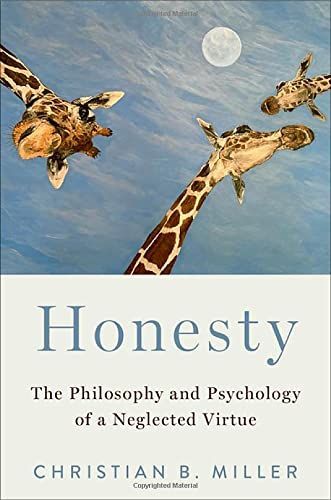
Honesty The Philosophy and Psychology of a Neglected Virtue
"Honesty is clearly an important virtue. Parents want to develop it in their children. Close relationships typically depend upon it. Employers value it in their employees. Yet philosophers have said almost nothing about the virtue of honesty in the past fifty years. This book aims to draw attention to this surprisingly neglected virtue. Part One looks at the concept of honesty. It takes up questions such as what does honesty involve, what are the motives of an honest person, how does practical wisdom relate to honesty, and is there anything that connects all the different sides of honesty, including not lying, not stealing, not breaking promises, not misleading others, and not cheating. A central idea is that the honest person reliably does not intentionally distort the facts as she takes them to be. Part Two looks at the empirical psychology of honesty. It takes up the question of whether most people are honest, dishonest, or somewhere in-between. Drawing extensively on recent studies of cheating and lying in particular, the emerging model ends up implying that most of us have a long way to go to reach an honest character"--